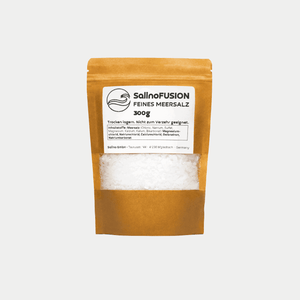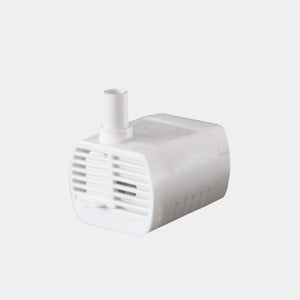Sometimes just a glance at the to-do list is enough to get your heart rate racing. Appointments, notifications, expectations – our everyday lives often resemble a balancing act between functioning and surviving. The body reacts with tension, sleep problems, or irritability. The soul sends quiet SOS signals that are lost in the noise of the day. Stress is no longer an exceptional condition, but a constant companion. But does it have to stay that way?
Modern stress research agrees: What we experience as "stress" is not a predetermined fate, but a reaction we can influence. It's not about avoiding everything—it's about finding new ways to deal with pressure, pace, and unrest differently. Ways that aren't tied to even greater performance, but rather to a return to what makes us strong as humans: mindfulness, self-care, and inner clarity.
In this post, we'll look at seven strategies that can help reduce stress in everyday life—in a way that has a profound impact and can be truly integrated into your daily life. Whether you're chronically overwhelmed, seeking more balance, or simply curious about new inspiration, this article is for you.
What happens inside us when everything becomes too much
Stress doesn't start in the calendar, but in the mind—more precisely, in an ancient part of our brain: the amygdala. It's our biological early warning sensor and decides lightning-fast whether something is dangerous. If so, it activates the autonomic nervous system—heart rate, blood pressure, and muscle tension rise. This was vital for survival when danger was still called lions. Today, we react the same way—only now the lions are emails, traffic jams, or unattainable expectations.
The problem: Our stress system doesn't differentiate between real threats and social pressure. It kicks in and stays active, often for hours or days. The body remains in a state of alert, even when we're already at home on the couch. This chronic activation is the real poison: It exhausts us, weakens our immune system, makes us sleep worse, and causes us to get sick more quickly.
It's not about avoiding stress completely—that's unrealistic. It's about changing our inner response. Because that's precisely where the key lies: If you understand how stress affects the body, you can consciously break through it—through movement, breathing, structure, but also through emotional self-regulation.
1. Self-care is not a luxury – but a necessity
 "I don't have time for breaks" – a phrase often uttered when stress is at its highest. And therein lies the paradox: the less time we feel we have, the more urgent we are for a little break. Self-care is then often misunderstood as a weakness – but in truth, it is the most powerful lever for true resilience.
"I don't have time for breaks" – a phrase often uttered when stress is at its highest. And therein lies the paradox: the less time we feel we have, the more urgent we are for a little break. Self-care is then often misunderstood as a weakness – but in truth, it is the most powerful lever for true resilience.
This isn't about wellness weekends or elaborate rituals. It's about something much more fundamental: not forgetting yourself. It starts with small gestures – a glass of water, a conscious breath, five minutes with your eyes closed. Such micro-breaks signal to the nervous system: You are safe. You can let go. Cortisol levels drop, muscles relax, and your gaze broadens.
Especially people who bear a lot of responsibility—whether at work, in the family, or both—tend to put their own needs on the back burner. In the long run, this leads not only to exhaustion but also to inner emptiness. Self-care means treating yourself as an equal again—not at the bottom of the list, but right in the middle of life.
2. Structure creates freedom: Why routines relieve stress
Chaos on the outside often reflects a feeling of being overwhelmed on the inside. Those who start the day in a rush have essentially already set the stress level – often long before the actual challenges begin. Structure can provide a counterbalance: It provides support, orientation, and reduces the number of decisions we have to make every day.
A structured daily routine doesn't have to be sterile. On the contrary: Well-established routines create the freedom to focus on what really matters. A consistent morning start—perhaps with five minutes of exercise or a short journaling session—can ground the day. Evening rituals help you unwind. And set meal times or conscious breaks during work aren't petty, but rather wise. The body loves rhythms—and the nervous system thanks you with greater balance.
The important thing to remember is that routines don't have to be perfect, but rather appropriate. Good stress management isn't a rigid plan, but rather a flexible framework that adapts to life—not the other way around.
3. Digital noise – and the longing for silence
 Most people today carry a device in their pocket that delivers more information in an hour than previous generations did in an entire day. We scroll, like, and react—often without pausing. This constant reaction consumes enormous energy. Every notification tears us out of the moment, activates our stress response, and ensures that we never fully arrive—neither with ourselves nor with others.
Most people today carry a device in their pocket that delivers more information in an hour than previous generations did in an entire day. We scroll, like, and react—often without pausing. This constant reaction consumes enormous energy. Every notification tears us out of the moment, activates our stress response, and ensures that we never fully arrive—neither with ourselves nor with others.
Digital sensory overload has become one of the biggest stressors of our time. Yet it's difficult to escape it. Why? Because dopamine—the neurotransmitter for short-term reward—is released every time we discover something "new": a message, a story, a like.
The solution lies not in total abstinence, but in conscious use. Screen-free time, clear boundaries for emails or social media, a phone-free morning – all of this can help create more space for what really matters. Because often it's only when we step back that we realize how loud it actually was – and how good silence is.
4. Breathe, feel, be there: The power of conscious pause
 It sounds too simple to be true – and yet it's scientifically proven: Conscious breathing changes our state of being. It calms the nervous system, lowers our heart rate, stabilizes our blood pressure. And above all, it brings us back to the moment. In a world where we often lose ourselves – in the outside world, in the noise, in the constant movement – returning to breathing is like coming home.
It sounds too simple to be true – and yet it's scientifically proven: Conscious breathing changes our state of being. It calms the nervous system, lowers our heart rate, stabilizes our blood pressure. And above all, it brings us back to the moment. In a world where we often lose ourselves – in the outside world, in the noise, in the constant movement – returning to breathing is like coming home.
Many ancient traditions have long known this. In mindfulness practice, yoga, and Zen, breathing plays a central role. Modern psychology and trauma therapy also emphasize the regulating power of breathing—not as a technique, but as a door opener. Those who learn to find an anchor in their breath learn to hold themselves—even when everything outside is shaky.
Breathe in – breathe out – and for a moment, want nothing. Don't fulfill a role, don't meet expectations. Simply be. This is exactly where true stress reduction begins – not in doing, but in being.
5. The Importance of Connection: Why We Need Others
 Stress isn't just a physical reaction—it's also a social condition. Isolation, emotional coldness, a lack of belonging—all of these can exacerbate or even trigger stress. Conversely, social support is one of the strongest protective factors against chronic stress. Studies show that those who feel supported, understood, and accepted are measurably more resilient.
Stress isn't just a physical reaction—it's also a social condition. Isolation, emotional coldness, a lack of belonging—all of these can exacerbate or even trigger stress. Conversely, social support is one of the strongest protective factors against chronic stress. Studies show that those who feel supported, understood, and accepted are measurably more resilient.
But in a world where efficiency often counts more than empathy, genuine relationships easily fall by the wayside. Conversations become to-dos, listening becomes secondary. Yet it's precisely the deep connection that nourishes—a frank word, an honest look, a silent "I'm here."
If you want to reduce stress, you don't need a hundred contacts. A real counterpart is enough. Someone with whom you don't have to function. Who listens without judging. Who is simply there. This creates the small spaces where healing begins – quietly but powerfully.
Conclusion: Finding new ways in old patterns
Stress can't be switched off like a light. It's a part of life – just as shadows are part of the light. But we can learn how to dance with it. How to perceive it without letting it control us. How to recognize the patterns that exhaust us – and change them with small, consistent steps.
The seven ways you've found in this article aren't magic bullets. They're invitations. To greater awareness. To more self-care. To more humanity—including toward yourself. And yes, they require courage. Because often, allowing yourself five minutes of peace is harder than making your next appointment. But that's where real change begins.
Sometimes it helps to create an environment that supports relaxation—be it through routines, silence, or even concrete aids. One option, especially for stress-related breathing problems or inner restlessness, can be the use of salty air. Devices such as a compact mini saline bath—which releases over 30% salt content into the room air—can also help calm the nervous system and relieve congestion in the respiratory tract. This can be a quiet but effective component, especially in stressful indoor spaces or as part of your evening routine.
In the end, it's not about living perfectly. It's about not losing yourself. Amidst the demands. Amidst the speed. Amidst everything. And sometimes that begins with a single conscious breath.



